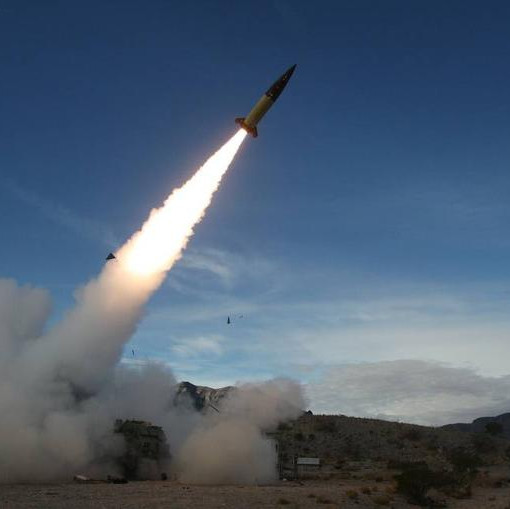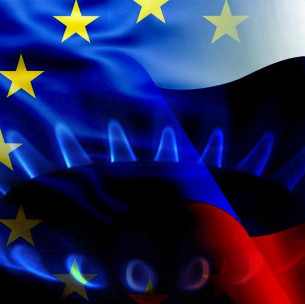What is Russia-NATO cooperation today? First of all, it implies joint exercises and, secondly, interaction between Russia and the NATO member states to set up theater missile defense.
At the end of last year, Moscow hosted a successful Russia-NATO command post exercise on missile defense. It was the third event of a similar kind, the previous two having been held in the United States and the Netherlands. The Russian-NATO exercises are held in compliance with the Rome Declaration of 2002 on new relations between the parties, which determines forms of interaction between them.
At present, Russian and NATO experts are analyzing the results of the exercise, drawing conclusions and drafting recommendations on how to improve interaction and find out soft spots. After a joint exercise analysis, coordinated recommendations will be offered, which will determine the format of future exercises. In this case, a military exercise is not a goal in itself. It is necessary to adjust the parties to each other and is, in fact, a motive for their rapprochement during joint activities.
Russian Defense Minister Anatoly Serdyukov has given a high assessment to Russia-NATO interaction for the setup of European theater missile defense. New concepts of cooperation and use of force were developed, he pointed out. The parties practiced interaction between command posts during the joint exercise. They conducted a serious research of compatibility of Russian and NATO missile defense systems with the help of computer modeling. The compatibility was confirmed, which allows discussing ways to significantly increase the efficiency of the systems.
Having offered a summary of the two aspects of military cooperation between Russia and the North Atlantic alliance, it could seem that the first seed of Russia’s integration with NATO in terms of collective missile defense has been planted. Now there is only to hope that the political soil, intensively fertilized by the Nation of Freedom and Democracy, will be up to it.
After America’s unilateral withdrawal from the ABM Treaty, both Russia and NATO understood the need for a European dialog on missile defense. The uncontrolled, unilateral setup of missile defense systems in Europe is a new Berlin wall, which can divide countries by the principle “if you are not with us (outside the European missile defense), then you are our enemy.” Russia and the NATO member states are having a fairly intensive dialog on different aspects of missile defense. Of course, their approaches are not always similar, but at least the partners listen to each other and take into account each other’s opinion.
Simultaneously, however, we are witnessing a different process: some NATO countries are building their bilateral relations in different directions, which are not always coordinated with the alliance’s general line and contradict cooperation with Russia.
I am referring to the U.S. plans to deploy a missile defense launch area in an East European country. Washington has said that this facility, remaining an element of the American missile defense system, will be meant to protect its European allies. This definition raises a number of questions.
Notably, it is unclear what threat for Europe the launch area in Poland (this country is struggling to be chosen as the United States’ exclusive missile defense partner) will help to eliminate. As to the statements that its setup is encouraged by North Korea’s missile tests, they are proved inadequate after one look at the globe.
Apart from its military aspect, the initiative of deploying missile defense in Europe has a certain symbolic meaning. Fifteen years after the end of the Cold War, Europe is again unable to do without America’s intensive care and its expanded military presence. This means that the efforts the EU is taking to set up its military structures cannot potentially succeed without the U.S. guidance.
“We view such decisions as moves seeking to disrupt the existing security system and to create new division lines on the European continent,” said Russian Defense Minister Serdyukov, speaking at the recent meeting with his counterparts within the Russia-NATO Council. The U.S. missile defense launch area that is being built to fight non-existent Iranian missiles can affect Russia’s existing deterrence potential, he added.
America’s moves to carry out its plans to deploy a third launch area of its missile defense system in Europe and their potential integration with the European missile defense programs have made it difficult for Russia to cooperate with the EU in the sphere, the minister said.
Russia is willing to continue cooperation on the setup of theater missile defense within the format agreed upon in the Russia-NATO Council’s program for this year. But this cooperation is possible only until it is transformed in the setup of a system targeting Russia.
Let us now discuss the plausibility of an alternative project – Russian-U.S. joint use of the Gabalar radar Russia leases in Azerbaijan. This topic has been present in bilateral discussions ever since the Heiligendamm summit. It was then that President George W. Bush first felt unwell after Russian President Vladimir Putin had voiced this proposal. Some journalists were even joking about the coincidence.
The U.S. determination to expand its missile defense in East Europe is not as manifest, but Washington is not going to give up the plans so far; it has only postponed the timeframe.
Unfortunately, Russia’s warnings about the negative consequences of the move are ignored by its partners, Serdyukov said. This was once again proved at the NATO meeting held in June. When commenting on its results, NATO Secretary General Jaap de Hoop Scheffer said none of the 26 NATO defense ministers had criticized the American project.
He also acknowledged that the project would not ensure missile defense of southern members of the alliance, including Turkey, Greece, Bulgaria and the eastern part of Romania. They are to be protected with the help of an additional tactical missile defense system, which will be set up by NATO and the decision on which is to be taken at the summit.
U.S. Secretary of Defense Robert Gates said at a news conference after the Russia-NATO Council’s meeting that America would not give up its plans to set up missile defense in Europe.
As to Russia’s proposal about joint use of the Gabala radar, Washington views it only as an additional resource complementing the European missile defense system. This was kind of a soft political rejection in the “Japanese style.”









